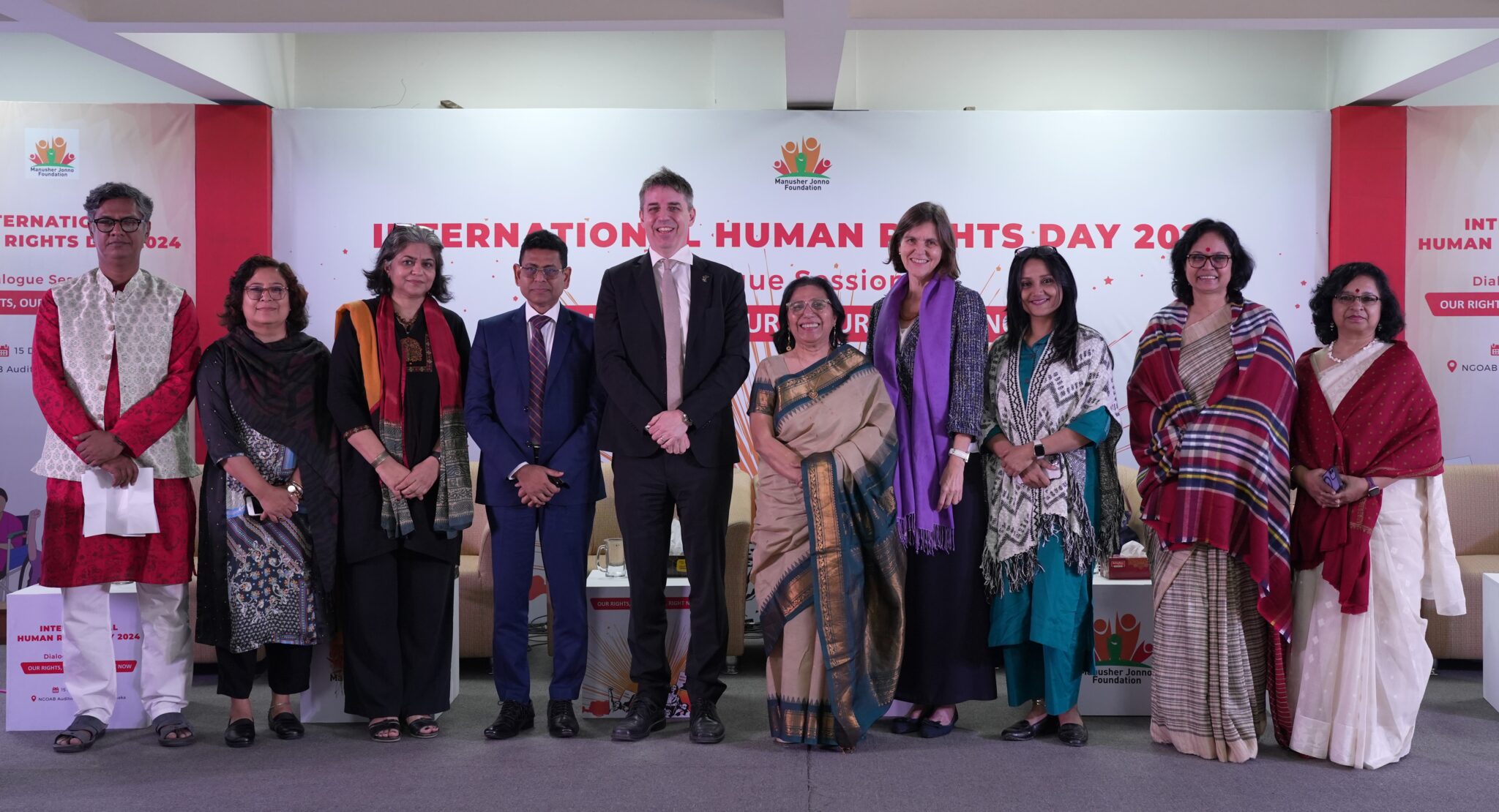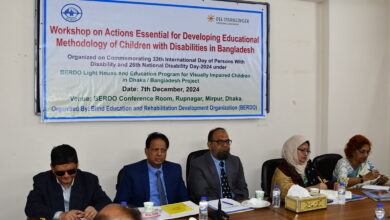People must stay vigilant and make stronger demands for their rights
Speakers stressed the needs to ensure human rights of all at a Dialogue of MJF

PARVEZ BABUL
Sunday, December 15, 2024. A Dialogue, titled “Our Rights, Our Future, Right Now,” was held in the capital today at the NGO Affairs Bureau auditorium. Manusher Jonno Foundation (MJF) organized it as part of observing the International Human Rights Day in accord with the declaration of the United Nations.
The discussants observed that people must stay vigilant and make stronger demands for their rights
Syeda Rizwana Hasan, Adviser to the Ministry of Environment, Forest, and Climate Change and Ministry of Water Resources, delivered her virtual address as the chief guest. She said, “The interim government is giving special attention to protecting the human rights of marginalized communities, addressing climate change, and preventing violence against women.”
“Human rights are the people’s rights. The interim government is working inclusively for all communities. Before demanding transparency from NGOs, the government itself must be transparent. We must work together for the greater interest of the people, setting aside narrow self-interests. Constructive criticism of the government by the public is essential,” Rizwana added.
As a panel member of the Dialogue Barrister Sara Hossain, Executive Director of the Bangladesh Legal Aid and Services Trust and member of the Human Rights Forum, emphasized the need for more localized action in the Chittagong Hill Tracts (CHT), where specific legal frameworks exist for indigenous communities.
She mentioned, “Local communities must raise their voices. Disability laws are being addressed, but the judiciary must become more proactive. Those working with the law must ensure its implementation.”
Dr. Sharmind Neelormi, a member of the White Paper Commission and Professor at Jahangirnagar University, she was also a panel member of the Dialogue highlighted the disproportionate impact of climate change on women.
“Women face increased inequalities due to climate change. Protecting the human rights of marginalized people, including persons with disabilities, indigenous communities, and coastal populations, is essential. The public must stay vigilant and make stronger demands for their rights,” Sharmind pointed out.
Anwar Hossain, Acting Director General of the NGO Affairs Bureau Bangladesh joined the event as a special guest. He stated, “To safeguard democracy, laws must be applied effectively. Through proper enforcement of the law, the rights of marginalized communities can be upheld. The role of the NGO Affairs Bureau is to assist NGOs, not to control them.”
Ambassador of Sweden to Bangladesh, H. E. Nicolas Weeks, reaffirmed his government’s commitment to upholding the principles of the Universal Declaration of Human Rights. As a special guest, he said, “We believe that implementing the Declaration can ensure the rights of all marginalized groups, paving the way for a society founded on equality.”
Corinne Henchoz Pignani, Chargés d’affaires at the Embassy of Switzerland in Bangladesh, was present as a special guest and emphasized the urgency of taking action. She further said, “Now is the time to raise our voices for rights. Regardless of religion or ethnicity, everyone must speak up fearlessly for their rights. Collective action is necessary to achieve SDGs 5 (gender equality) and 16 (peace, justice, and strong institutions).”
In her closing remarks, MJF Executive Director Shaheen Anam amplified, “From the moment a person is born, they grow with human rights. Human rights are intrinsic to each individual; they cannot be granted, taken away, or divided. Everyone’s rights must be ensured. Human rights violations must not be silently endured and we must foster a mindset open to differing opinions.”
Dawani Prue Naly, executive director of Ananya Kallyan sangathon (AKS) in the CHT, women and men with visual impairment, speech impairment, and other disabilities, women leaders and rights activists spoke at the event among others.
Around 300 representatives from development organizations, persons with disabilities, indigenous groups, transgender individuals, Dalits, coastal community representatives, and youths took part at the dialogue.
They shared a number of recommendations to implement, which are integral part of the Universal Declaration of Human Rights. MJF plans to compile and submit those to the current interim government. The event was moderated by Wasiur Rahman Tonmoy of MJF.





